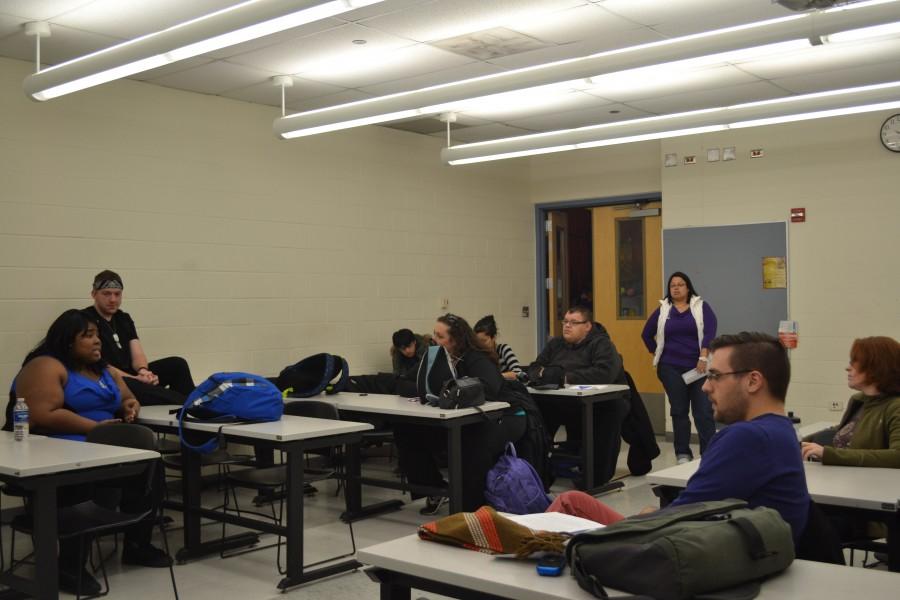Lech Walesa’s Anti-Gay Comments Hit Home
March 26, 2013
Former president of Poland and Nobel Peace Prize winner, Lech Walesa, upset individuals around the world by saying gays have no rights to prominent roles in politics. According to the Associated Press, in an interview on March 1, 2013 on TVN24, Poland’s 24 hour news channel, Walesa said that he believes gays have no right to sit on the front benches in Parliament and, if represented at all, should sit in the back, “and even behind a wall.”
“They have to know that they are a minority and must adjust to smaller things and not rise to the greatest heights, the greatest hours, the greatest provocations, spoiling things for the others and taking [what they want] from the majority,” Walesa said during a discussion of gay rights. “I don’t agree to this and I will never agree to it. A minority should not impose itself on the majority.”
On several news outlets online, comments from readers varied from some people agreeing with him, to others saying he should be stripped of his Nobel Peace Prize.
His words made an impact throughout the Northeastern Illinois University (NEIU) community. In May 2009, the former “classroom building” was renamed Lech Walesa Hall (LWH) in a full dedication ceremony. According to a campus press release on May 18, 2009, the dedication coincided, “With the City of Chicago’s celebration of the 20th anniversary of the fall of communism in Poland—a historic event in which President Walesa played an instrumental role.” When talking of their thoughts on the situation, some students didn’t know who he was or even that Lech Walesa Hall (LWH) was named after him.
On March 5, 2013, President Hahs sent out a campus-wide response to Lech Walesa’s comments. “President Walesa’s homophobic comments are completely contrary to the Values of Northeastern Illinois University, particularly our Value of Diversity,” said Hahs. “This Value states, ‘NEIU values the inclusion of a broad spectrum of students, staff and faculty in the life of the University. We celebrate and foster global perspectives. We encourage the open and respectful expression of ideas and differences in thoughts, experiences and opinions.’”
Some members of the NEIU community that are aware of the issue have started calling LWH by its old name, the Classroom Building. “I don’t want to take my classes in a building that’s named after somebody who thinks that members of the LGBTQA community should not have political rights,” said Chakira Hamilton, a political science major at NEIU who has five classes in LWH. “I’m not against his right to free speech, but to me, diversity, which is the main principle that this university is always emphasizing – is inclusive, not exclusive – so if you’re going to be about that diversity, be about it in an inclusive manner.”
President Hahs said she already received one petition from faculty and staff of The College of Education (COE) asking if it is possible to remove the name from the LWH building. “It was very respectful and talks about being distressed about his statement and feeling that it was at odds with the philosophy of the College of Education and all of their academic programs,” said Hahs.
There are procedures to follow for organizing petitions or demonstrations. “If the students were to do a petition, I think that is fine, and is certainly within the mechanisms we all use to express ourselves. I would hope that it would be done respectfully as well,” said Hahs. “Then what we have to figure out is what is an appropriate process to consider and whether there is one petition or more petitions. We are debating that right now. I have acknowledged the receipt of the first petition and said that I will be consulting with the Vice Presidents on the notion of venues.”
In the end, the Board of Trustees approves the naming of buildings. “If we were to change it, that would take Board approval too,” said Hahs. “Then the rest of it is, what would the mechanism be for even considering a recommendation to the Board and it would be up to me to recommend that we take an action, but we’re not there yet.”
According to several reports, Walesa will not apologize for his remarks. “I will not apologize to anyone,” the former president said in an interview on March 4, 2013. “All I said [was] that minorities, which I respect, should not have the right to impose their views on the majority. I think most of Poland is behind me.”








